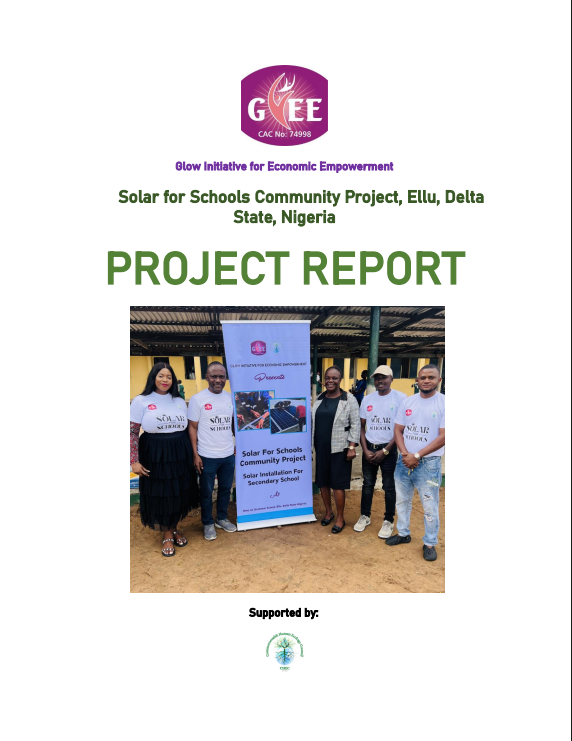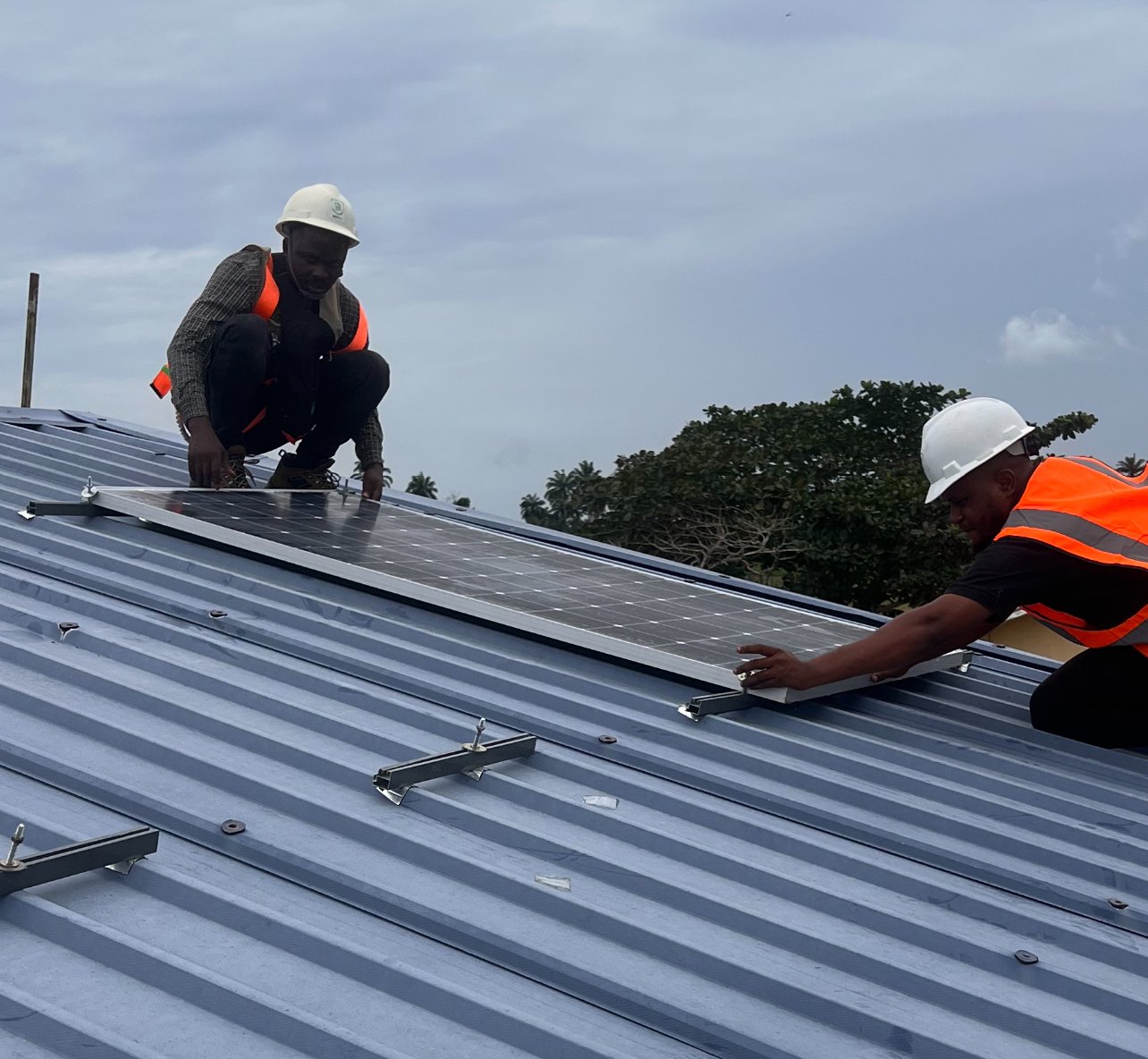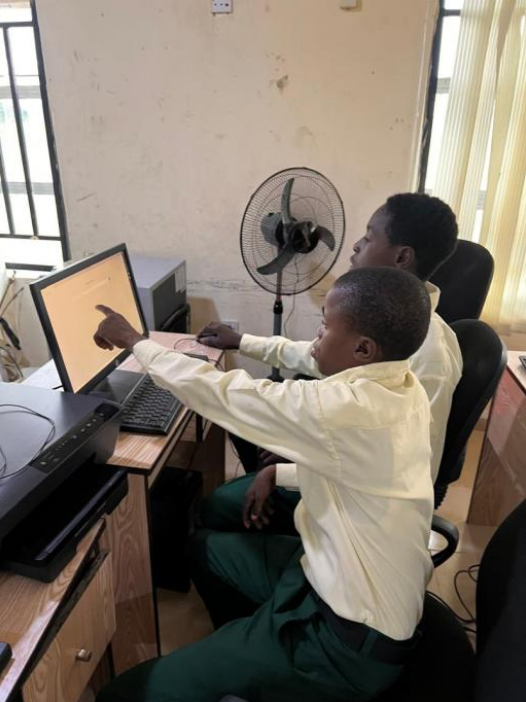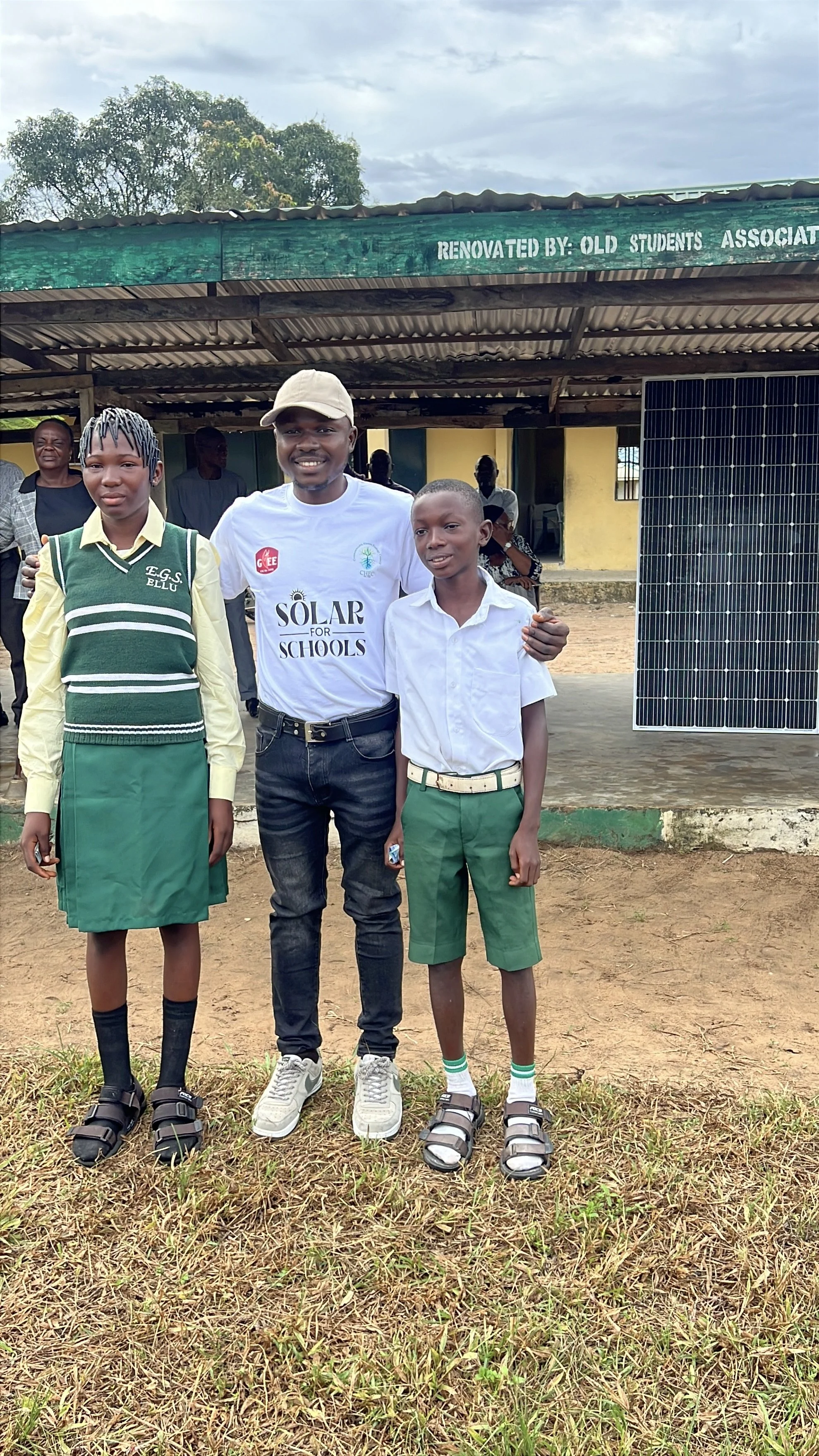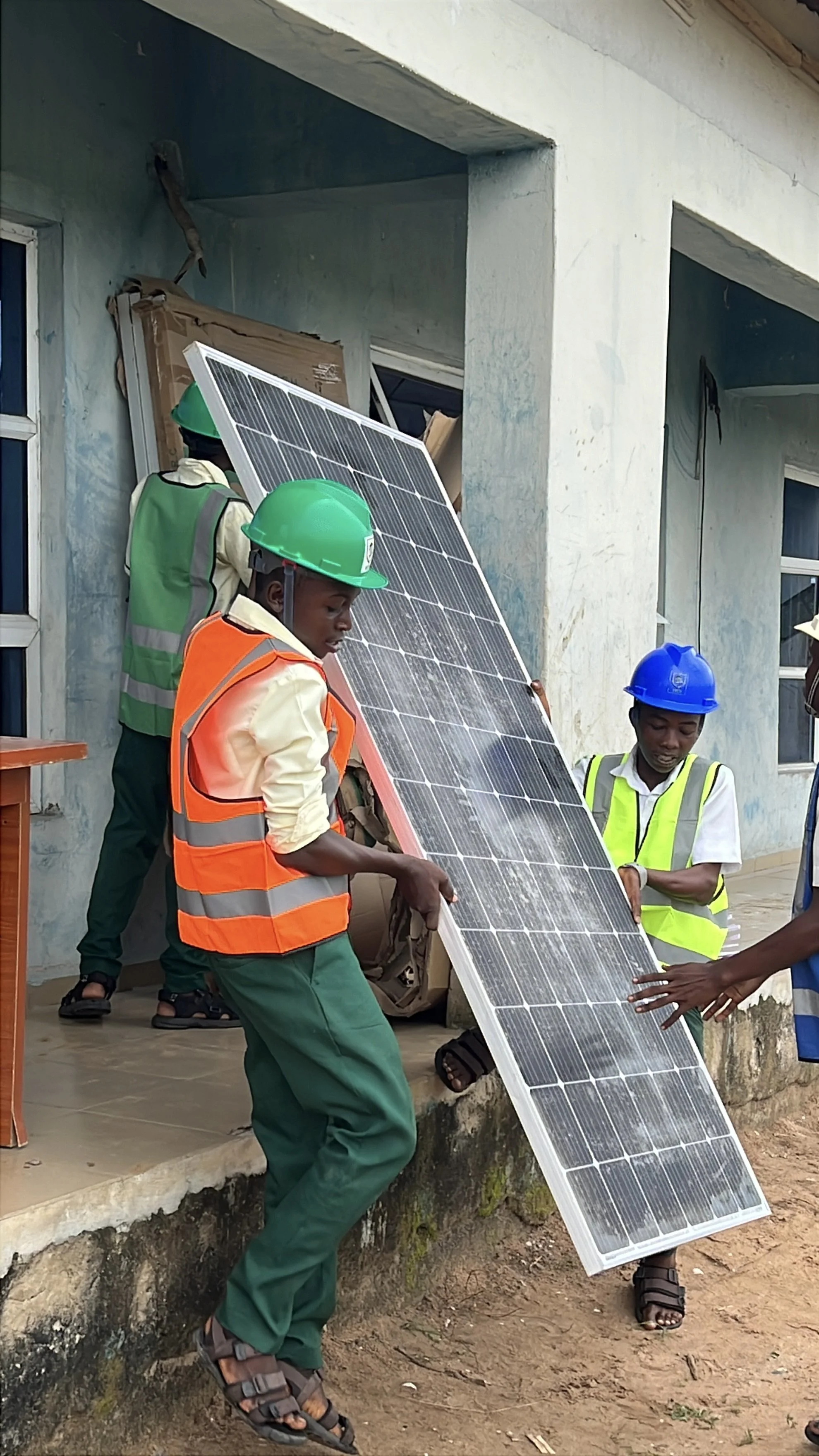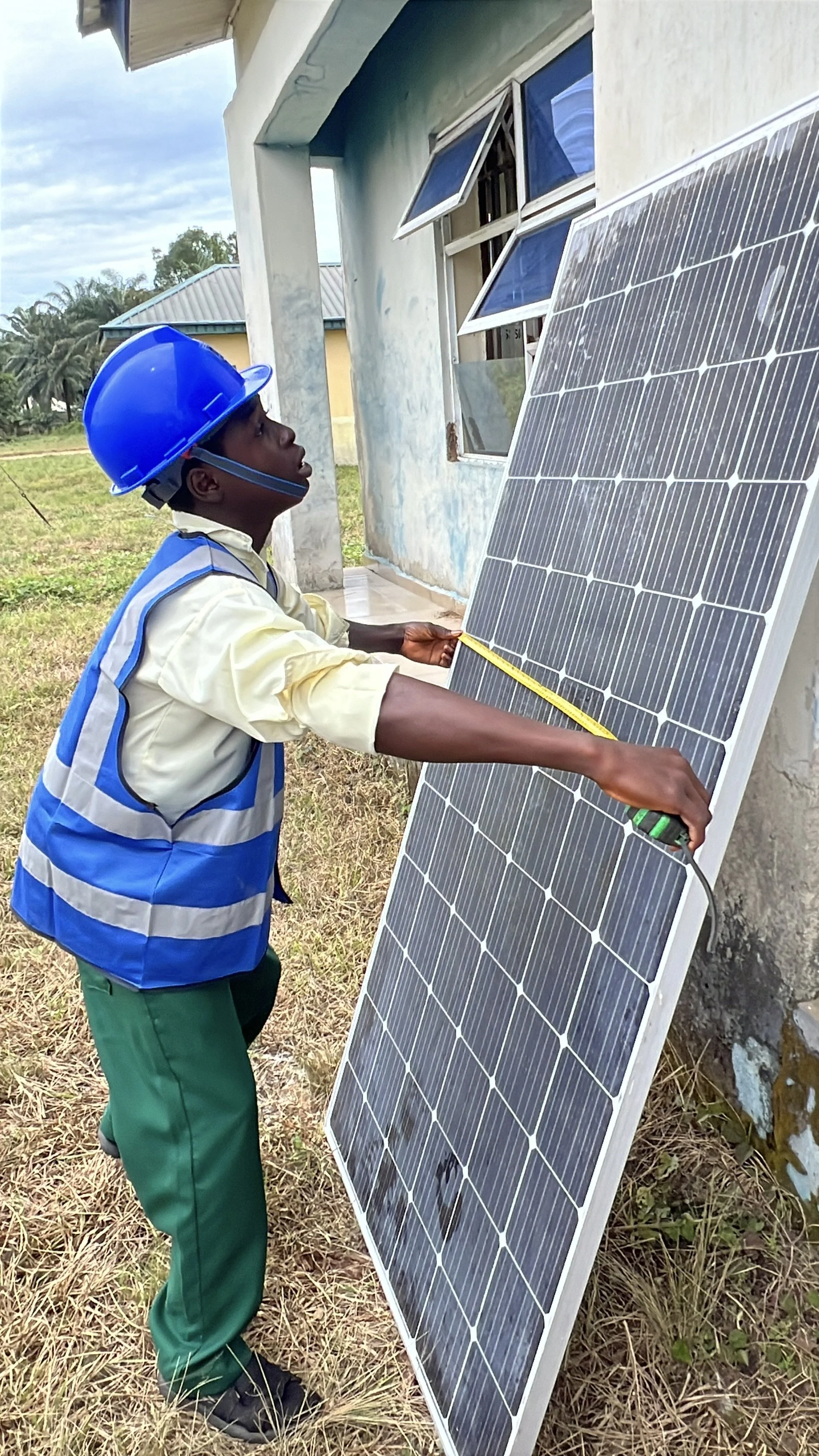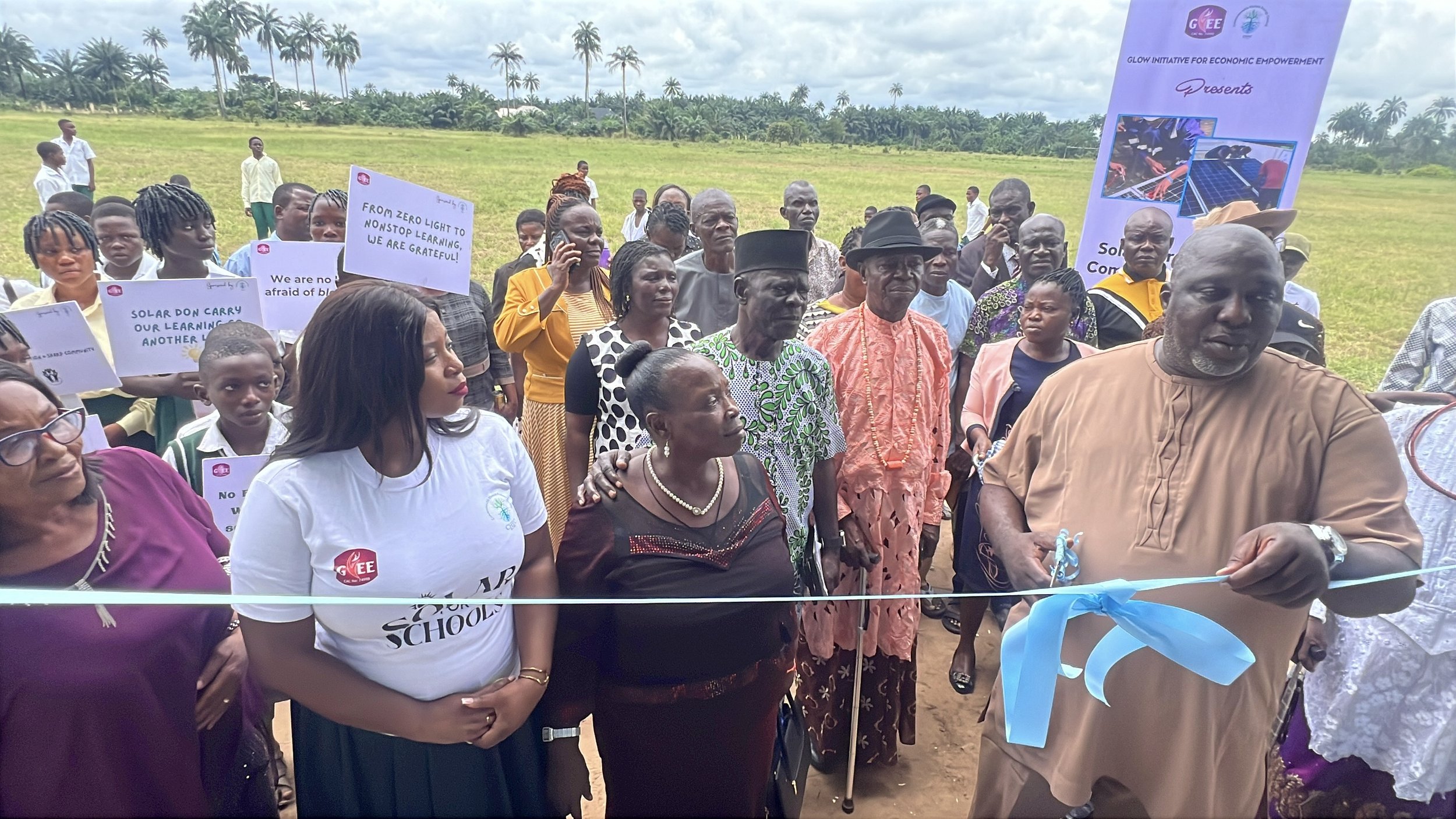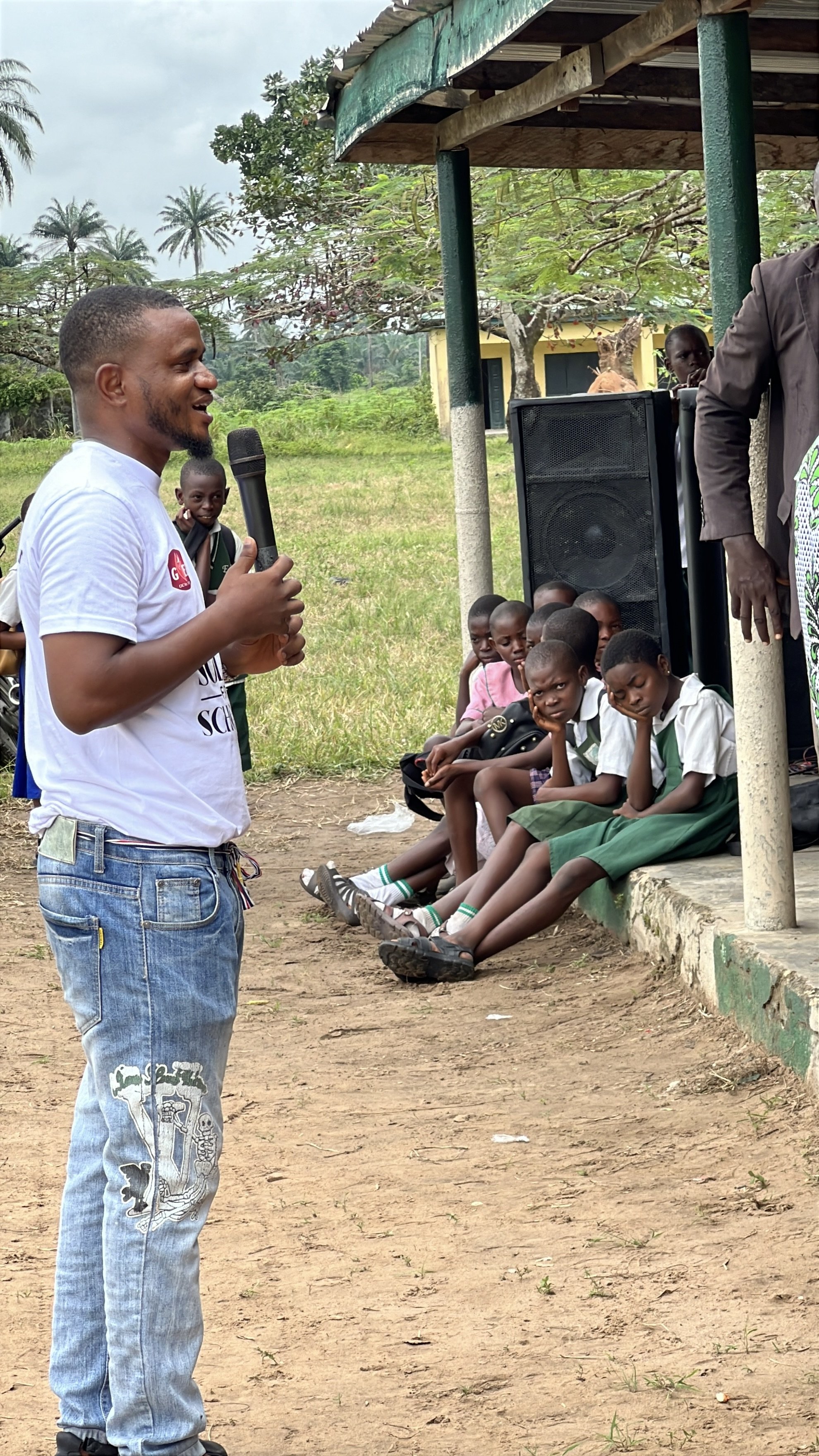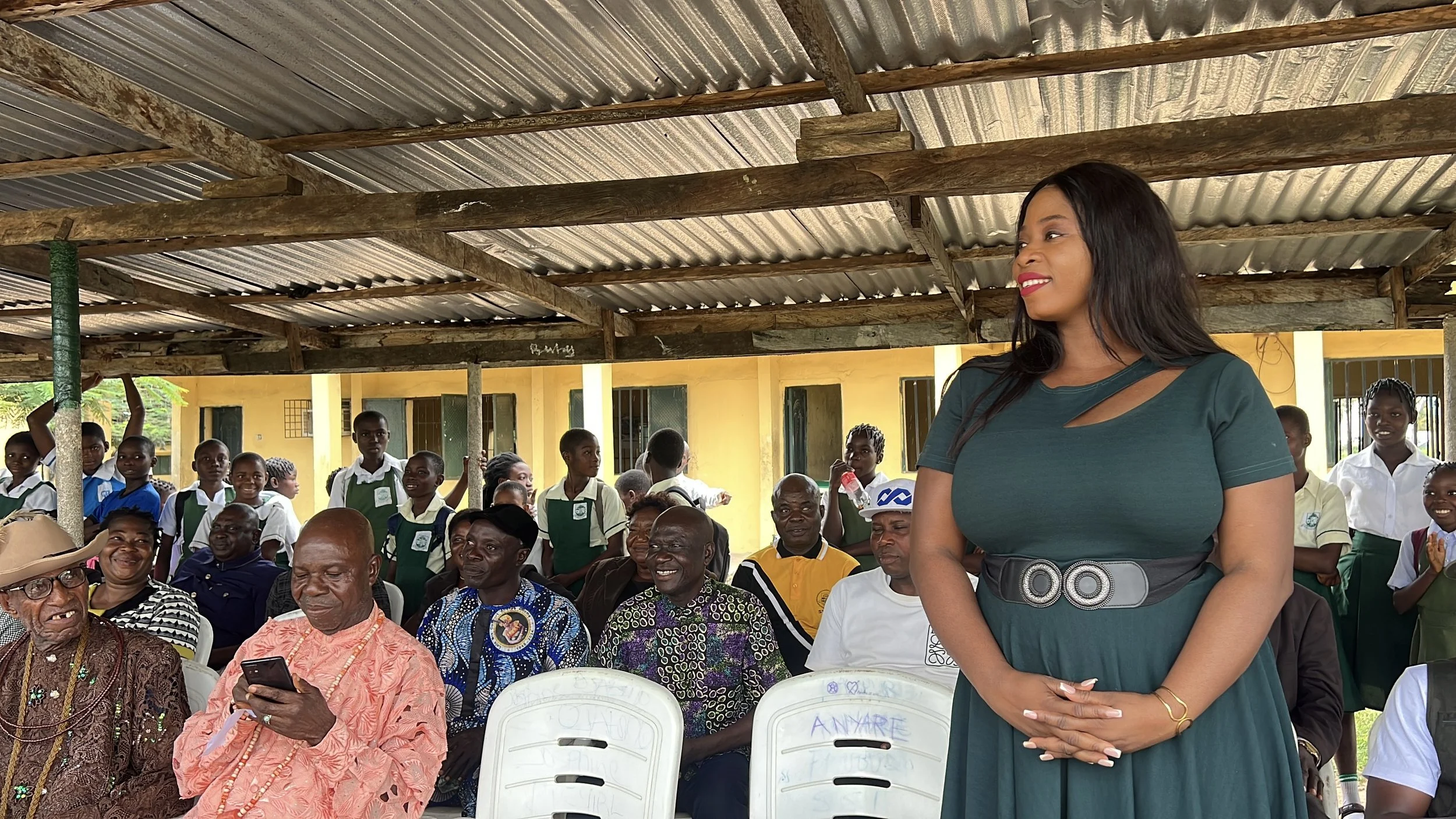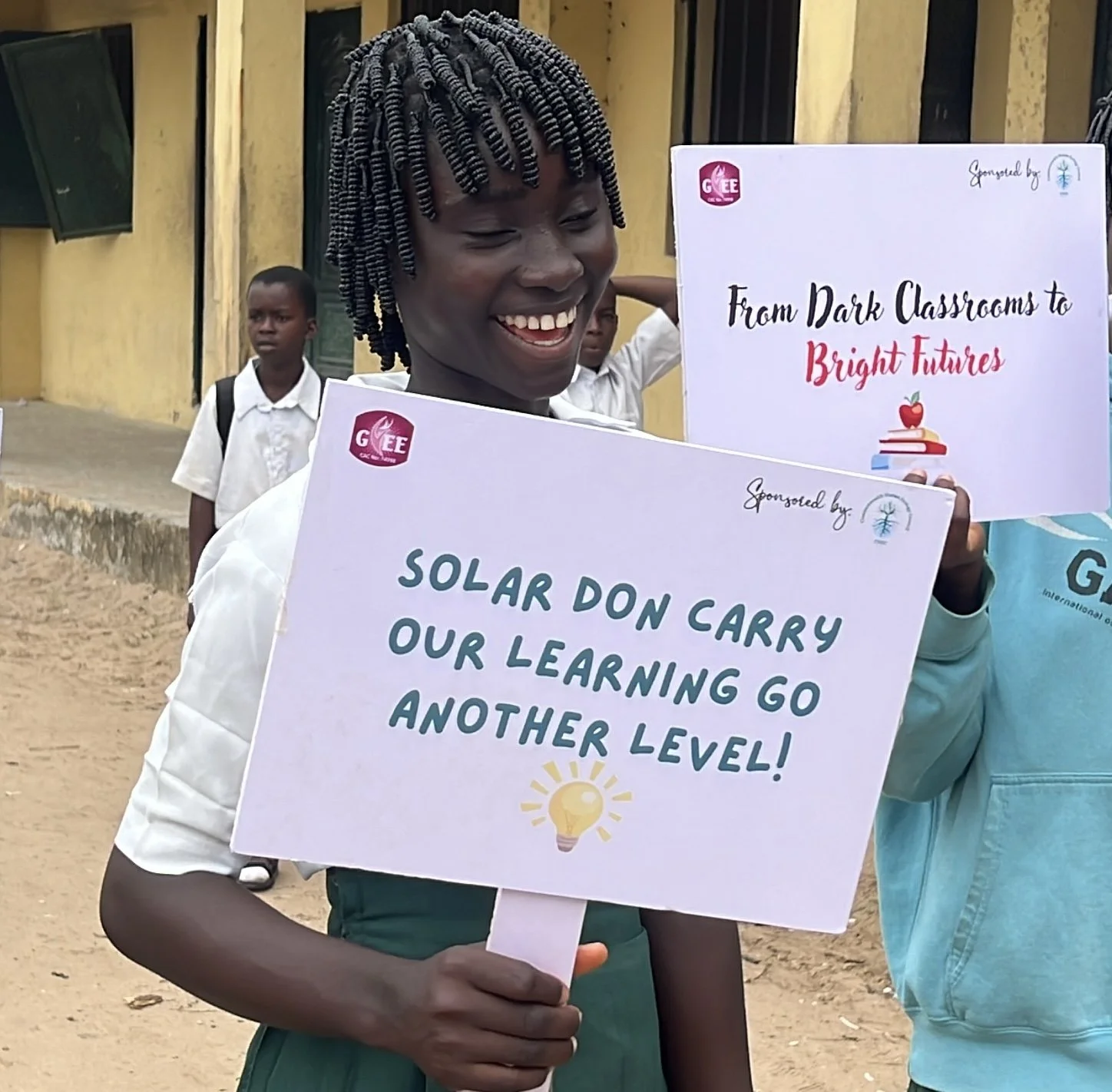
Solar for Schools Community Project II
CHEC is proud to announce the Solar for Schools Community Project II, our second project installing solar panels in rural schools in Nigeria. With the support of the Commonwealth Human Ecology Council, the Glow Initiative for Economic Empowerment successfully installed a 3.5 kVA solar power system at Emo Eni Grammar School, Ellu Community, Delta State, in September 2025. This installation marks a significant step towards enhancing educational infrastructure by providing a reliable and sustainable source of electricity. The solar power system is expected to improve the learning environment by enabling extended study hours, powering essential electronic devices, and reducing reliance on fossil fuels. This project aligns with broader efforts to promote renewable energy adoption in underserved regions, contributing to local economic empowerment and environmental sustainability. The success of this initiative underscores the importance of collaborative partnerships in addressing energy challenges faced by rural communities in Nigeria.
The Need for Solar-Generated Electricity at Emo Eni Grammar School
In Delta State, most rural schools are located off the national grid. Those that manage to operate often rely on diesel or petrol generators, which are expensive to maintain and fuel. Others simply function in darkness, unable to provide computer-based learning or power their classrooms. At Emo Eni Grammar School, the absence of reliable power had halted computer studies entirely. Students missed out on practical ICT lessons and were unable to prepare adequately for WAEC, JAMB, or CBT exams. Nigeria’s Electricity Act and Energy Transition Plan call for decentralized renewable solutions. This project aligns with those national priorities by equipping youth-centered learning institutions with clean energy solutions that expand access to ICT education.
Voices from the School
“This area has no electricity at all. When I took over the school about a month ago, the computer lab had been vandalized, the generator stolen, the appliances and lights gone. As a result, the students could not take their computer classes or prepare properly for WAEC.”
— Principal Mrs. Egbe Gloria
“For six years, we have not had electricity in this school. Imagine what that means for me as the computer practical teacher, teaching theory with no power to practice. The students had lost interest completely because we could only talk about computers, never touch them”
— Computer Practical Teacher – Mrs. Happiness Ese
“This entire community has suffered from lack of electricity for years. We once tried using a petrol generator, but the cost of fuel was unbearable and maintaining it was even harder. It was later stolen, and since then, most students stopped taking computer studies seriously”
— Computer Theory Teacher – Mrs. Ann Okoye
Project Outcomes
Immediately after the system activation, one of the SS1 students quietly walked into the lab, switched on a computer, and resumed his typing practice from where he had stopped months earlier. He looked up and said, “Now I can finish my work.” That moment captured exactly what this project means: restored power, restored learning, restored hope.
The installation of the solar system at Emo Eni Grammar School immediately transformed the learning atmosphere. Within two weeks of commissioning, every student in the ICT department had used the computer laboratory — a 100 % usage rate that reflected how much the power barrier had limited their learning before.
Alignment with CHEC Goals and Sustainable Development Goals (SDGs)
This project supports the Commonwealth Human Ecology Council’s mission of advancing human well-being through sustainable ecological development. It directly contributes to:
1. SDG 4 (Quality Education): By enabling access to ICT education and digital literacy.
2. SDG 7 (Affordable and Clean Energy): By delivering renewable power to an off-grid school.
3. SDG 13 (Climate Action): Through avoided CO₂ emissions and reduced dependence on fossil fuels.
The Solar for Schools Community Project at Emo Eni Grammar School stands as a clear demonstration that community-driven solar electrification can transform rural education while creating local technical capacity and economic empowerment. By integrating renewable energy, ICT access, and hands-on learning, the project has improved academic performance, restored hope, and built a replicable model for sustainable rural development.
-
Emo Eni Grammar School in Ellu, Delta State, Nigeria
-
September 2025
-
1. Electrification: Provide continuous, reliable power for ICT and study spaces.
2. Local Ownership: Train students and select teachers to understand and maintain the solar system. -
Student Ambassadors: Select students from the technical class were trained to support routine system maintenance under teacher supervision.
Maintenance Plan: These select students
Capacity Building: Students participated directly in installation activities, learning the fundamentals of solar PV design, energy-demand estimation, and wiring safety.
Training Outcomes:
i. Students gained foundational understanding of solar energy and how sunlight is converted into usable power.
ii. They can identify and explain the function of each component in a photovoltaic (PV) system. iii. Students learned to calculate the electrical demand of a building and size a system appropriately.
iv. They demonstrated competency and confidence during hands-on installation exercises.
Read the Project Report here
On behalf of Glow Initiative for Economic Empowerment, RETTI, the Emo Eni Grammar School community, and the students whose futures are now brighter, we express our deepest gratitude to the Commonwealth Human Ecology Council (CHEC) for their partnership and vision. Together, we have proven that clean energy does more than light classrooms, it lights futures.

